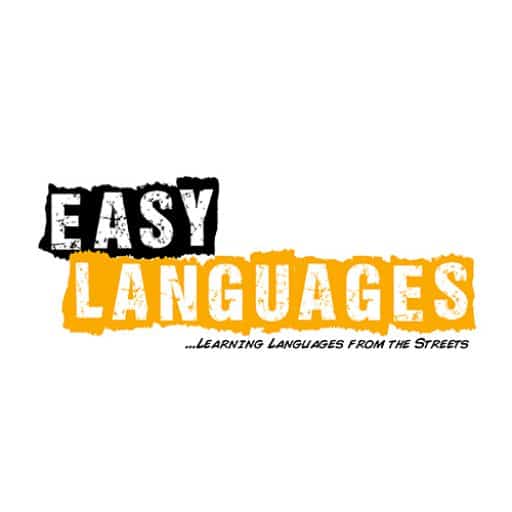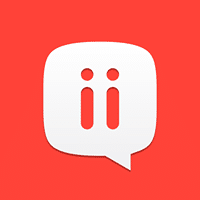
The 4 Core Language Skills
Language learning requires concentration, dedication and skills.
Now, while these skills may not be easy to master, they are at least easy to understand and name.
Allow me to introduce you to the four language skills and 13 tips on how to improve them.
Contents
- What Are the Four Language Skills?
- Tips for Reading
- Tips for Listening
- Tips for Writing
- Tips for Speaking
- How Much Should You Focus On Each Language Skill?
- And One More Thing...
Download: This blog post is available as a convenient and portable PDF that you can take anywhere. Click here to get a copy. (Download)
What Are the Four Language Skills?
Learning a new language can be difficult. Anyone who’s ever learned a new language is right there with you. But believe it or not, you only need four main skills to achieve fluency.
That’s good news, right?
Here’s some even better news: You probably already know what they are. In order to become fluent in a language, you need to master these four basic skills:
- Listening
- Reading
- Writing
- Speaking
Reading and listening are passive skills. You’re consuming the language.
Speaking and writing are active skills. You’re producing the language, which requires a different mental muscle.
When someone is fluent, it usually means that they are proficient in all four skills. But how can improve all four of them? Read on for tips on how to do just that.
Tips for Reading
While reading might be the most passive skill, that doesn’t necessarily mean it’s easy. Text that may be casual reading in your native language can take double or triple the time to fully comprehend in a new language.
Here are some ways to build your reading skills.
1. Change the language settings on everything.
Most people spend large chunks of their time engaged with an electronic device. Use that to your advantage.
If you’re reading this post, then there’s a good chance that you’ve got access to at least one, if not all, of these devices: a television, a laptop, a computer, a tablet, a cellphone, a smart watch…the list goes on.
So change your language settings to your target language on every device you can.
Even if reading isn’t part of your ultimate goal, this strategy is still very useful. You’ll be building vocabulary with the repetition of notifications and common features that you use on your device.
2. Read one news article per day.
Unlike language learning programs, where the reading material is purposefully written in easy-to-understand verbiage, online articles are written for native speakers.
If you’ve tried it, you know that in reading an article in a foreign language you’ll be hit with both words you’ve never seen before and words that you recognize but are arranged in such odd combinations that your mental translations are nothing short of gibberish.
Just take five minutes during your commute or your work break to pull up an article of interest in your target language and start reading.
You don’t even have to finish it all in one shot. You can spend days on the same article if you have to. Just make sure you give yourself constant exposure, and you’ll see that over time the reading will become much easier.
The best way to go about finding articles is to do a Google search for something like best news sites for ___ learners. Here are some lists for common languages to start you off in Spanish, French, German and Japanese.
Another option is to do a search for “news” in your target language.
3. Read what the teens are reading.
Books for teens and young adults are another great resource for immersing yourself in a language.
The text is going to be less mature and have less jargon than a journalistic article, for example, so you’ll find that you’ll have less of a headache getting through the text.
One great idea is to get a book that you’ve already read in your target language. For example, if you’re a fan of series such as “Harry Potter” or “The Hunger Games,” you’ve probably read the books more than once and know the stories inside out.
When reading these stories in your target language, you won’t struggle so hard to figure out what you’re reading, and will likely be able to easily translate words you’ve never seen before just because you already know the story.
Tips for Listening
Even if this is considered a passive skill, this is arguably the second-toughest skill after speaking. However, mastering it is just a matter of daily exposure.
Here are some fun and easy ways to get listening in so that you’ll have more confidence in real-world situations.
4. Listen to songs in your target language on repeat.
Music is such a great way to build listening skills as a language learner. Unlike movies and television, music is something we memorize. We learn the words and we sing along.
With access to countless volumes of music through YouTube and streaming services, you can spend an entire day discovering new music in your target language and strengthen your listening skills.
If it’s your first time hearing a song, look up the lyrics online on a website like Genius. Play the song over and over again until you’re sick of it and sing along. By that time, you won’t need the lyrics anymore, because you’ll know every word.
Make sure to squeeze in music wherever you can. During your morning routine, your commute. If you have a desk job, even better. You’ll be impressed with how quickly your audio comprehension improves.
A good way to find songs is to search Google for popular artists in your target language, if you don’t already know any, and then search for the artist on YouTube or your favorite streaming service.
There’s also a wonderful website called Lingoclip where you can make a game out of learning lyrics by listening to songs and then filling in the gaps in the lyrics. They provide music in several different languages, at all levels of learning.
6. Watch 3-5 videos per day on YouTube.
YouTube videos are great for quick, controlled listening. You can find short and long video clips about pretty much anything that interests you.
You can subscribe to several channels in your target language so that you learn the most current slang and colloquialisms while also staying up-to-date on culture.
You can also subscribe to the channel Easy Languages. There’s a good chance you’ll find videos in your target language. You can watch short videos of people discussing different topics with subtitles in both English and the language you’re learning.
If they’re available, you can easily turn on subtitles in English or in your target language for other videos, which will make it easier to follow along.
There’s also a speed option on YouTube (under “Settings”), which you may or may not know about. For a language learner, it’s a gift.
When you slow down the speed of the videos you’re able to pick up on more words and phrases, and when you’re ready, you can speed it back up again to see how much you’ve learned.
You can also make the videos go faster than normal, just to challenge yourself, and then when you go back to normal speed the native speaker won’t sound so fast to you anymore.
Tips for Writing
This active skill is probably the skill you’ll use least as a language learner unless your job requires it.
It can be just as important as any of the other skills, though, so check out three ways to get more writing time in.
7. Make your to-do list in your target language.
We all have such busy schedules and sometimes it’s hard to keep track without a to-do list. Well, if you’re a language learner, language practice is probably on that list. So, why not get your practice in at the start of your day?
When making your list of things to do for the day, or for the week, however you organize your time, try writing all of your tasks in your target language. Not only is it a good way to practice, but it’s also a great way to wake up your brain.
8. Find an online pen pal.
It sounds old-fashioned, but having a pen pal is still a great way to practice. You won’t be writing letters and mailing them to some far-off country, at least, not unless you choose to. Today, you can find a pen pal online and have a dialogue from anywhere at any time.
Depending on the relationship you have with your pen pal, you can go back and forth in emails, or maybe you’ll communicate through one of many websites or apps.
A written exchange with a pen pal helps you actually see your mistakes. 
You can find pen pals online through websites such as Interpals and My Language Exchange. For more websites, click here.
9. Write short stories.
Tapping into your creative side is a fun way to break up some of the monotony of typical language practice. You can literally write stories about anything.
You’ll get the chance to explore words and topics that you might not use, or think to use, in everyday conversations. You’ll be thinking in similes and metaphors, and playing with word combinations.
Try starting this on a day off or when you’ve got at least two or three hours to spare. You’ll want to be able to take your time, so it doesn’t have to be completed in one day.
Maybe set a goal to finish a story in a week, and do a small bit every day. As long as you’re putting pen to paper—or fingers to keyboard—you’ll be progressing.
Writing stories will help you think about the language in a different way. They can be as long or as short as you want, and the most beautiful part of it all is that no one ever has to see them.
Tips for Speaking
The holy grail for language learners, right? More than anything else, we learn new languages because we want to be able to speak them.
If you’re not sure how you can get more speaking time in, the three suggestions below should set you on the right path.
11. Find a tutor on italki.
On italki, you can find a tutor or a teacher. When you have a tutor or a teacher, it’s all about you. While these options cost money, you’ll have someone who’s one hundred percent invested in you.
With a tutor or a teacher, you can set a regular schedule, so that every week you’re guaranteed to have at least one day where you get to practice for however long you’ve arranged it with your instructor.
italki also offers the option of taking group classes. These are one-off classes or a short series of classes focusing on various topics such as grammar, conversation, job interviews, even culture and history. You can select your language and browse the list of classes to see if there’s something interesting for you.
12. Join a local language Meetup.
It’s great to be able to learn with a group of other learners. In Meetup groups, you can find people at all levels and engage in dialogue on any topic in a safe and non-judgmental environment.
When you find a group on Meetup, make sure it’s active. You’ll want to join a group that has regular events, because that way you know you’re dealing with people who are serious about learning and practice.
A lot of times the Meetup groups gather in locations where there’s food or drink, and many times at venues with a cultural link to the language you’re learning for a more immersive experience.
So if you want to break up some of the loneliness of learning solo and share your frustrations and triumphs with like-minded companions, log on to Meetup and find a group that fits your needs.
13. Go directly to the source.
If you like to read tips about the best way to go about learning a language, you’re almost always going to find immersion on the list. There’s a reason for that, as it’s the most effective way to learn.
To say it straight, if you have the time, money and opportunity to travel to a country where your target language is spoken, then go, stay at least three months and have the time of your life. When you come back home, you’ll be a lot more fluent than when you left.
If you can’t leave the country, then immerse yourself locally. If you live in a big city, or near a big city, you have access to so many different cultural communities. If your target language is Spanish, hang out in Hispanic neighborhoods, go to restaurants, read, listen and speak.
“But,” you may be thinking, “What if my foreign language is French, German, Urdu, etc.?” Some communities are going to be easier to access than others, depending on where you live. However, that’s what the internet is for. Do a search and you can find what’s available within a comfortable distance from home.
If you still can’t find what you’re looking for nearby, that’s okay. You can use some of the suggestions above such as YouTube, pen pals or language exchange to get an immersive experience. Another option is to try the immersive language learning program FluentU.
FluentU takes authentic videos—like music videos, movie trailers, news and inspiring talks—and turns them into personalized language learning lessons.
You can try FluentU for free for 2 weeks. Check out the website or download the iOS app or Android app.
P.S. Click here to take advantage of our current sale! (Expires at the end of this month.)
How Much Should You Focus On Each Language Skill?
How much you should focus on each language skill depends entirely on your situation, however, here are a couple of steps you can take to assess which skills you need to give extra attention to.
Understand your strengths and weaknesses
You’ll often hear people who learn another language mention that they’re weakest in listening or speaking. This makes sense. While one is a passive skill and one an active skill, both speaking and listening are skills that fall somewhat out of your control, and so are likely to need more work.
For instance, you can’t control how fast or slow someone else will speak, and when you’re still learning, the faster someone speaks the harder they are to understand.
Reading and writing, on the other hand, you can control. Generally, they’re both solitary activities. With both, you can go as fast or slow as you’d like. You can stop and do a search for translations. People tend to pick up on these two skills much quicker than speaking and listening, because they can take their time developing the skills.
Ironically, though, speaking and listening, the skills that we tend to covet the most, are also the skills that we try to rush, even though they often take longer to master.
The scenarios mentioned above are common, but they may not apply to everyone. So think about it. What are your strengths and weaknesses?
Keep building up your strengths, but don’t push the weaknesses off to the side. Set goals to get them stronger. With enough consistent practice, you’ll see improvement.
Determine your needs
Depending on what your needs are, you’ll need to master at least three skills if you want to be fluent (you might be able to get by without writing depending on what your situation is).
Mastering all four is time-consuming, so before you jump into a long-term study plan, first determine what your needs are.
Determine what your goals are and why you are learning. Is it for fun? Work? Family? Only you know how you’ll be using the language, so you should tailor your learning in a way that will be both efficient and effective.
You don’t want to waste time building up skills that you’ll never use. If you have the time, great, go for it. If not, focus more of your energy on the skills that you need the most.
It’s a challenge to learn a language, but what a great one!
Find ways to make it fun and interesting and it won’t feel like learning at all.
You can do this, so get out there and start strengthening those skills!
Download: This blog post is available as a convenient and portable PDF that you can take anywhere. Click here to get a copy. (Download)
And One More Thing...
If you dig the idea of learning on your own time from the comfort of your smart device with real-life authentic language content, you'll love using FluentU.
With FluentU, you'll learn real languages—as they're spoken by native speakers. FluentU has a wide variety of videos as you can see here:
FluentU has interactive captions that let you tap on any word to see an image, definition, audio and useful examples. Now native language content is within reach with interactive transcripts.
Didn't catch something? Go back and listen again. Missed a word? Hover your mouse over the subtitles to instantly view definitions.
You can learn all the vocabulary in any video with FluentU's "learn mode." Swipe left or right to see more examples for the word you’re learning.
And FluentU always keeps track of vocabulary that you’re learning. It gives you extra practice with difficult words—and reminds you when it’s time to review what you’ve learned. You get a truly personalized experience.
Start using the FluentU website on your computer or tablet or, better yet, download the FluentU app from the iTunes or Google Play store. Click here to take advantage of our current sale! (Expires at the end of this month.)










